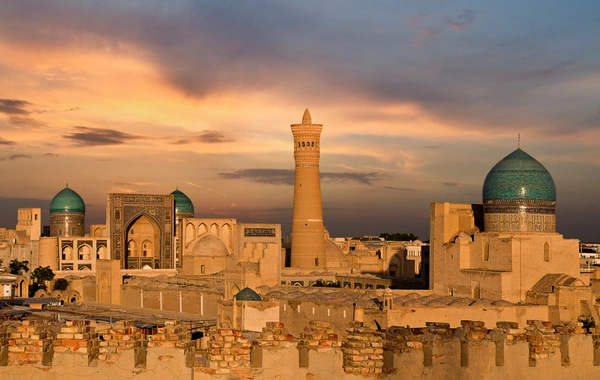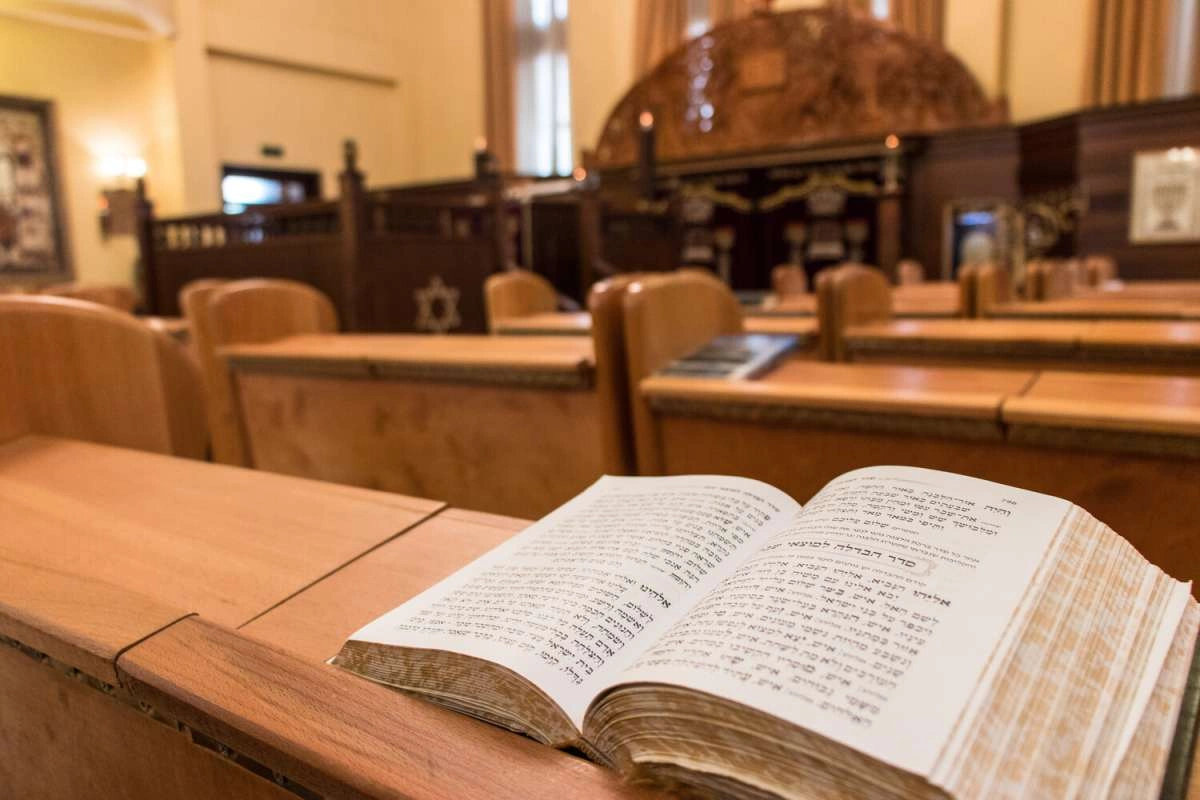
In the picturesque region of Quba - the Jerusalem of the Caucasus.
Image: Nurlan Mammadzada/Shutterstock
To those of us desensitized by modern news — hate crimes, racial tensions, and the disturbing resurgence of rampant antisemitism, — an existence of a corner of the world where Muslims and Jews refer to one another as family may sound more idyllic than believable.
The history of the Mountain Jews in Azerbaijan, and their unity and coexistence with Azerbaijani Muslims, extends back two centuries, and to date remains a model for the rest of the world to emulate. In fact, most would be surprised to learn that world’s last surviving shtetl, and the only all-Jewish town outside of Israel and the United States, is located in — and is protected by — a Muslim-majority country.
While most of the 30,000 Azerbaijani Jews live in the capital of Baku, the heartland of Azerbaijan’s Mountain Jewish community is a quaint town in the picturesque region of Quba, called Qirmizi Qesebe. It’s translated from Azerbaijani to English as the “red town” — a name inspired by the red tiles that line its many rooftops. Often referred to as the Jerusalem of the Caucasus, the Red Town’s history of Jewish settlement in the remote mountains of the Caucasus dates back to the 5th century. Some say that Mountain Jews, also known as the Kavkazi Jews, are the descendants of the Ten Lost Tribes of Israel.
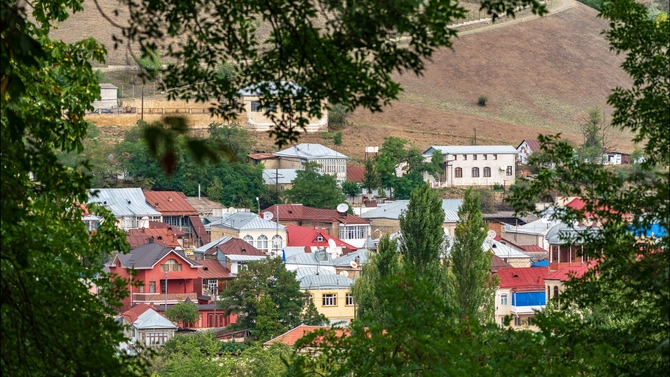
When I visited the Red Town several years ago, its tranquility reminded me of the summers I spent in Azerbaijan as a child before my family emigrated to Canada. A smell of the local cuisine wafted over from an open window as a group of kids kicked a deflated soccer ball down the road. The six domes of the red brick synagogue just ahead of us glinted under the sun.
Elderly men sat underneath shaded pergolas, drinking hot black tea from pear-shaped armudu glasses in 40- degree weather. It seemed counterintuitive at first, but the locals assured me of the cooling properties of a hot glass of tea. I remember the rustling of the vine leaves over their pergola. A few Isabella grape clusters hung above and looked heavy enough to tumble to the ground from the nudge of the slightest breeze. Several ornate mansions loomed over the modest homes in the foreground, blocking the sky with their height. They belong to the significant number of business tycoons in Russia who’ve originated from the Red Town. In the Azerbaijani and Mountain Jewish traditions of maintaining enduring connections with one’s hometown and family, particularly with the older generations, the renowned businessmen are known to visit the town often, while continuously reinvesting into the Red Town’s infrastructure and building homes for their extended families.
Eight synagogues out of the original 13 have been preserved in the Red Town, after decades of Soviet measures to repress religion across the USSR. During the Soviet years Mountain Jews were forbidden from attending synagogues, yeshivas, or partaking in religious activities. They still gathered together for Shabbat dinners and honored their culture, albeit quietly and with much fear, as not to attract the attention of the Soviet government officials. The Russification policies across the region, which forced both the local Jewish and Muslim communities to adopt Russian as their primary language, had endangered the native tongue of the Mountain Jews — Juhury — confronting them with ensuing its continuity through the Soviet repressions.
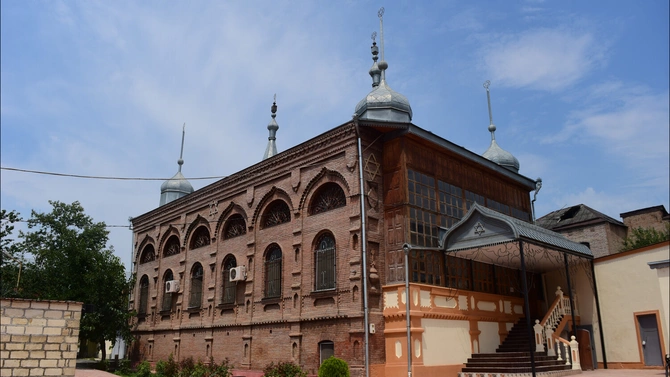
With the protection of the local government and support of businessmen of Azerbaijani Mountain Jewish origin in Russia, Jews in Azerbaijan experienced a sort of a religious revival since the 90s. Synagogues were renovated and reopened; a yeshiva was built in the Red Town, and another one — Chabad Ohr Avner — in Azerbaijan’s capital of Baku. New routes are being planned around the country, to connect visitors with Jewish history and culture.
The world’s first Museum of the History and Culture of Mountain Jews opened last year (2020) in Red Town, with the aim to preserve the Juhury language, customs, unique cuisine, and the Mountain Jewish heritage rooted in the town. The largest collection of books in the Juhury language will be exhibited at the museum, along with clothes, jewellery, religious relics. A multimedia installation will showcase short films about Mountain Jewish life, songs in the Juhury and Azerbaijani languages, recipes of the Mountain Jewish cuisine.
Shenor Segal, the Chief Rabbi of Azerbaijan’s Ashkenazi community says, “The tolerance in this country is something that should be exported.”
It’s difficult to disagree. An Ashkenazi synagogue faces a Mountain Jewish synagogue across a small park in downtown Baku, merely a walking distance from Baku’s turn-of-the-century Teze Pir Mosque, and the Russian Orthodox Church nearby. No security anywhere.
A semi-bronze monument to Azerbaijan’s Jewish National Hero, Albert Agarunov, stands tall on a street also named after him in Baku. Agarunov, a masterful tank commander, had been killed in the battle of Shusha some 28 years ago, during Armenia’s military occupation of Azerbaijan’s Nagorno- Karabakh region. The instability that blanketed the country as a result of the invasion had led to mass emigration of Azerbaijanis in the early 90s. With an option to repatriate to Israel, Agarunov chose to volunteer into the Azerbaijani army instead, in order to defend his home.
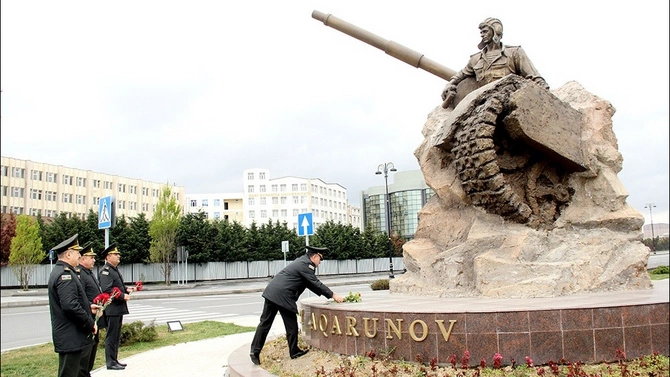
For the locals, Mountain Jewish culture and Azerbaijani culture are inextricably linked. There’s a curious absence of a need to categorize Azerbaijani cultural elements as either Muslim or Jewish — the food, the music, the musical instruments are shared and are intertwined with one another’s heritage. Mountain Jews are woven into the fabric of Azerbaijani culture and maintain a lifelong connection with their homeland, even when living abroad.
The Chairman of the Mountain Jewish religious community in Azerbaijan and the author of the Jewish Journal, Milikh Yevdayev writes, “It is with this sense of peace and freedom that we prepare for another Shabbat; all of us here are in possession of a rare gift mostly unknown to even the global Jewish world.”
Muslim Azerbaijanis, who make up more than 90% of the country’s population, and the Azerbaijani Jews have peacefully coexisted for so long, they use each other’s religious idioms interchangeably. A Westerner would likely be baffled to hear the locals say, “Inshallah, we’ll meet after Shabat.” Even though Inshallah is simply used in place of “hopefully” by mostly secular Azerbaijanis, some form of cognitive dissonance is guaranteed.
There is a video of Mountain Jews in Brooklyn, celebrating Sefer Torah with Azerbaijani musical instruments in hand, festively dancing and singing. “Salam to our Jewish brothers! Your home always awaits you!” reads one of the many well-wishing comments underneath. A wave of gratefulness washes over me. I’m deeply moved, by the solidarity and friendship that blooms amongst these ordinary people of different faiths, against the backdrop of a world that isn’t always intent on co-existence.
This article was originally posted at thej.ca.
Share on social media
